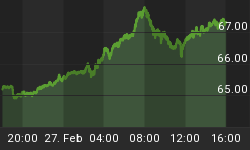Why Read: Because this commentary ought to focus you on how carefully you have to read things before reaching your own conclusions.
Featured Article: A May 17 article published by the Pew Research Center suggests "the (American) public's lack of interest in Europe's (economic) woes is part of a broader indifference to international news". The article, headlined 'Public Yawns at European Economic Woes' reports:
- that in a survey conducted two weeks ago, 17% of those surveyed said they were following news about Europe's economic problems 'very closely' (with 3% saying it was their 'top story of the week'), while 40% were following U.S. economic news 'very closely' and 20% were following U.S. economic news more closely than any other story;
- "the (American) public does not believe Europe's financial crisis presents much of a threat to the U.S. economy". The basis for this statement is a survey the Center did in December, 2011 where:
- 76% of respondents said the size of the U.S. national debt posed a major risk to U.S. economic well-being; while,
- 46% said that economic problems in Europe represented a major threat (to U.S. economic well-being; and,
- the December 2011 survey results with respect to European economic problems were largely bi-partisan, while same-survey results with respect to other respondent-perceived U.S. economic threats including Chinese economic competition (59% of respondents), Financial Institution and Bank power (56% of respondents), and Government Regulation of business (44% of respondents) saw wide partisan differences.
The Washington, DC Pew Research Center is an independent, non-partisan public opinion research organization that studies American attitudes toward politics, the press and public policy issues. It conducts both monthly polls on political and major policy issues, and weekly surveys aimed at gauging the American public's interest in and reaction to major news events.
Commentary: The article headline needs to be looked at as somewhat 'sensationalist', absent the Pew Research Center updating its December 2011 survey to a current date - and either confirming or contradicting the response statistics then reported. This is because a great deal has happened by way of 'events crystallization' since the second week of December 2011, including:
- Greece has had a 'soft default' on its sovereign debt, is now without a Federal Government pending mid-June elections, prognostications for its economy are bleaker now than they were but six months ago, and there is far more focus on the possibility of a Greek withdrawal from the Eurozone today than there was six months ago;
- Spain's economic problems are now much more broadly reported and recognized today than they were in December 2011;
- negative populace reaction throughout the Eurozone (in particular) to Government austerity measures is far more evident today than it was six months ago. Witness goings-on in France, Greece, Spain and The Netherlands, to name but four of the seventeen Eurozone countries;
- the United Kingdom and a number of Eurozone countries have now re-dipped into 'technical recession' (being two months of consecutive negative GDP statistics);
- the European Central Bank and the International Monetary Fund both have committed substantial funds to Eurozone countries in an attempt to shore up their economies; and,
- there is more 'contagion talk' and 'contagion concern' evident today than there was six months ago
As a consequence, while a very recent response from an American poll that suggests 17% of American's are following European economic problems closely is interesting, it is:
-
hardly a compelling reason to say that the American public is 'yawning' over what currently is going on in Europe;
-
perfectly understandable, having regard to the unemployment and low GDP growth in the U.S., that the U.S. populace is more focused on what is going on economically in America than it is on what is going on economically in Europe.
To determine whether American's see Europe's economic problems as a 'Major Threat', the Pew Research Center ought to repeat its December 2011 survey now, and publish the results. Even if a current survey reports the same bi-partisan 46% of American's who think Europe's economic problems are a 'Major Threat' is reported, that is a significant percentage.
Public Yawns at European Economic Woes
Source: Pew Research Center, May 17, 2012
Reading time: 3 minutes















